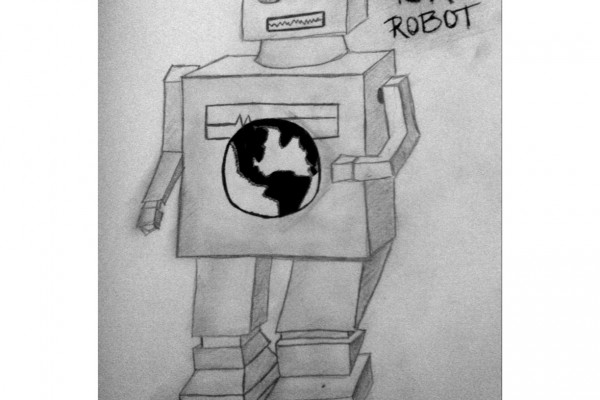Are you listening to music while reading this article? Have you ever thought about music in relation to the environment? And I don’t mean that one time you heard a small town troubadour singing about the beauty of nature with all its luscious forests and cute bunnies. I am talking about the music industry and its impact on the environment. We can’t say that our generation was raised unaware of the environment. Most of us were taught about recycling at home or at school, taught to turn the lights off when leaving a room, to not throw trash on the ground and not to leave the water running and so on and so forth. These were all reflexes and attitudes we were taught so we could grow up to be good Samaritans, but rarely have we stopped to consider the carbon footprint of some of our leisure activities, like listening to music. Music is impalpable, music is fun: how could music hurt the environment?
Bringing sweet funky tunes to our ears turns out to be a long, environmentally-harmful physical process. The artist needs to record his/her music, gather a team, get the correct paper work approved, plan some shows and a tour, play in venues and then drive from show to show… All of this energy consumption produces waste. To make this even more horrific: think of all the lamps, coffeemakers, printers and other ordinary electrical objects that are associated with the entire production process. The point is not to terrify you or make you feel guilty about how you go about your life. The point is to paint a picture of how the music industry actually impacts the environment.
As an up-and-coming artist, one of your main concerns is being able to sustain yourself with your art, something you want to retain throughout your career. All the musicians we adore and spend hours fan-girl dancing to have a dual role: creating art and acting as a business agents. They surround themselves by a crazy amount of people: a personal manager, business manager, lawyer and agents. Depending on how they lead their career, the artist may also have to interact with record companies and venue owners. The music production process is a costly one for all the different stakeholders. With all of that, the music industry is known for being a harsh one; each member enjoys different levels of profit and none is willing to relinquish any more money than needed. Talk about a bunch of Scrooge-lookalikes. The global record industry was worth $15.6 billion in 2013. The average price of a song on iTunes is $1.25, the price of a CD ranges from $10 to $15 and for all intrigued hipsters out there, a used vinyl sells on average for $20. That means that a lot of people want to make a lot of money from an artist and their $1.25 song sale. Say the music business tried to make an environmentally-friendly change, like if venues started charging higher prices to invest in more sustainable practices (such as using greener equipment): someone somewhere down the line will be making a little less money, and that ain’t fly in our capitalist society. Thus, it seems as though the change towards greener practices may take a while to be implemented in this particular industry.
The not-for-profit company, Julie’s Bicycle, whose mission, as claimed on their website, is to close “the gap between the creative industries and sustainability” have help launched scholarly interest on this subject. In 2007, Julie’s Bicycle commissioned the Environmental Change Institute through Oxford University with the purposeful mission of estimating the UK music market’s yearly greenhouse gas emissions. Through the research, it was found that the UK’s music industry produced approximately 540,000 tons of CO2e per annum. To give you a more conceptual image, all of us ‘90s kids can recall what an old cassette looks like. A simple cassette tape in its case weighs about 0.08kg, the amount of CO2 the UK’s music industry solely releases corresponds to 6,750,000 cassettes. Now why would I parallel cassette tapes to CO2, because cassette tapes have become a pretty obsolete object, and the environment would be better off without the CO2 emissions. If we have been able to eradicate cassette tapes from our daily lives, perhaps we ought to do the same for pollution (see what I did there with the cassette-environment hyperbole, yeah that’s how deep I went). The research went deeper and analyzed how much of an impact each was made by each of the different stakeholders within the music industry. Their report suggests that about one-quarter of the industry’s GHG emissions were due to the recording and publishing sector and the remaining three-quarters of the emissions were exclusively produced by the live music performance sector. There are about 2000 live music venues and 500 annual festivals in the UK. Clearly, when we talk about environmentalism, we need to shine a spotlight on the music industry. People involved in the industry will soon have to start rethinking their current approaches to music, including leisure listeners like ourselves.
Although renowned for being stubborn, the music industry still has some redeeming qualities when it comes to the environment. For all you hardcore CD buffs out there (me, very, very, very much included), technically MP3s are greener. They are digital, there is no physical exchange. This is promising for the industry as it is becoming more and more digitalized. CDs are selling less and less, and clubs are turning more and more towards digital DJing.
The music industry needs to strongly change the way the live performance scene is conducted since it has been proven to be the most damaging portion. The main issue associated with concerts and lives shows is the amount of trash that is produced per event. Concert-goers generate a lot of trash with the purchases made at the concession stores in addition to simply leaving their belongings behind. The good news is, over the last few years “greener” concerts have started emerging, like the famous Coachella in the US — a festival that continuously undertakes a variety of environmental initiatives. For instance, they set up stationary bikes to allow participants to charge their phones, have a solar powered DJ booth, and an approximately 14m tall wind-powered clock tower. Another example is Glastonbury, a notorious festival in the UK. It’s the kind of festival where you party in your wellies. They have a strong policy to “leave no trace”, with a strong emphasis on recycling and ensuring their sites stay clean. On the other spectrum of environmental concerts, there is Burning Man experience, a festival aiming to rekindle the ties of humans with nature and recreating a self-sustaining community. It has the same “leave no trace policy” as Glastonbury: partakers bike from camp to camp, collectively prepare meals, ensure recyclable practices, etc.
These are just examples of some of the initiatives concert and show organizers have started taking; of course there are many more practices that can be implemented that are much more easily attainable. Simply flicking the lights off when a rig or performing hall is not being used are examples of small positive steps that can be executed by members of the music industry. Once the problems of trash have been attended to, perhaps the next step will be facilitating transportation to shows and concerts, in hopes of reducing the GHG emissions produced by the people driving to these events. Too many of us are willing to travel for too many hours to see Lionel Richie’s latest show.
WRITTEN & IMAGE BY MARGAUX JOLY
PICTURE SOURCES: Headphones, Leaf






Gaby
Awesome article!! Very good point! I knew it in the back of my mind but never really thought of it! This would be a huge area in which we could make a wonderful impact on our beloved earth!